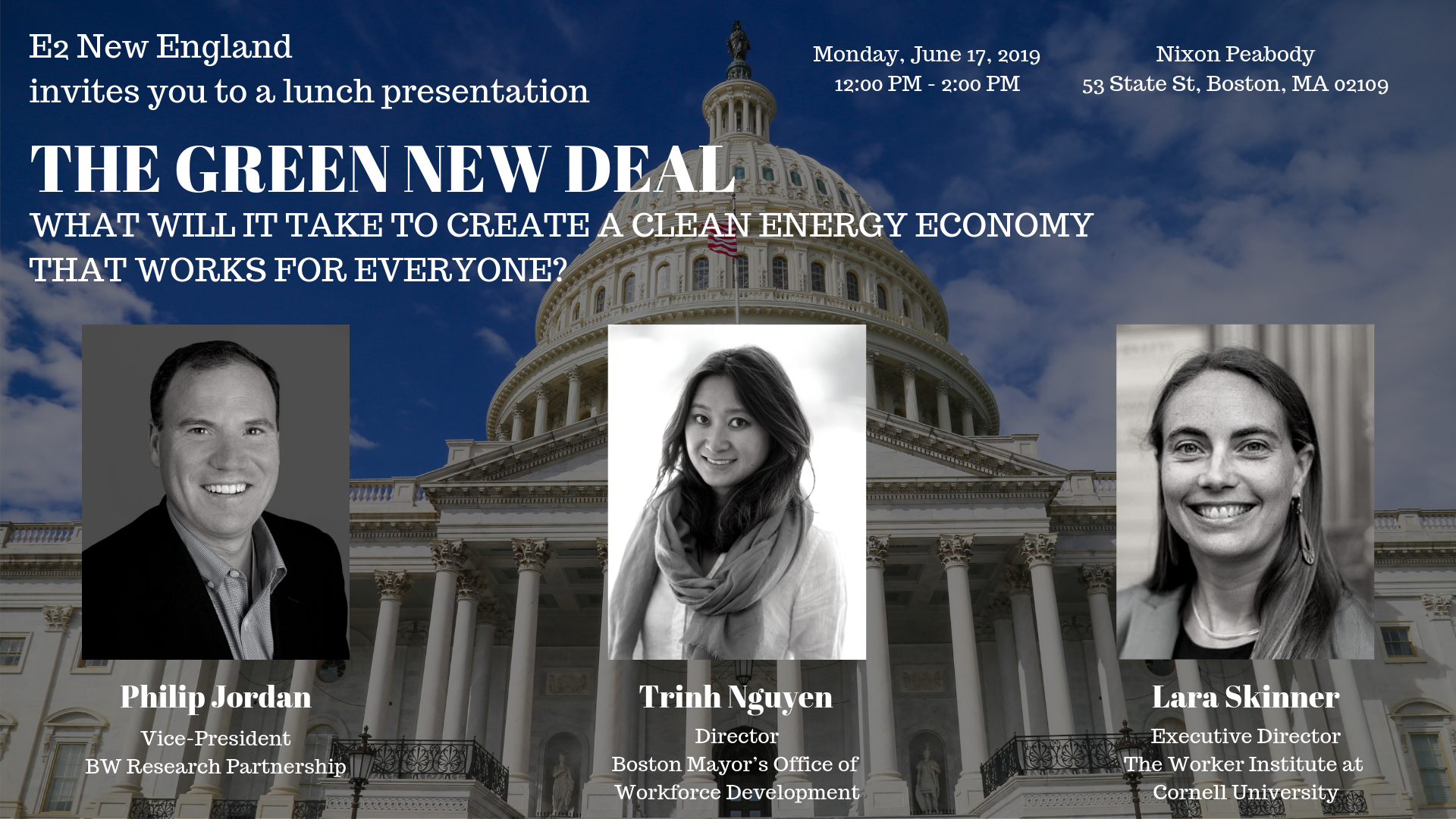Date: June 17, 2019
Time: 12:00 PM - 2:00 PM Eastern
Overview
 Against a grim 12-year deadline to stave off the worst effects of climate change, the Green New Deal has emerged as a long-awaited solution to some, an example of government overreach to others, and as a lightning rod of attention to all. Among its many components, the resolution offers a vision for an equitable transition away from fossil fuels and toward clean, renewable energy. Can we cut through the noise around the Green New Deal to have a practical discussion of its possible economic effects? What are the workforce development requirements of a 21st-century clean energy economy and how might the Green New Deal help us achieve them? How do we envision a just and equitable transition from fossil fuels and what assistance might the Green New Deal offer toward creating one? And finally, what effect will sweeping policy change in Washington ultimately have in a city like Boston? Please join us a for a panel discussion where we tackle these lofty and difficult questions.
Against a grim 12-year deadline to stave off the worst effects of climate change, the Green New Deal has emerged as a long-awaited solution to some, an example of government overreach to others, and as a lightning rod of attention to all. Among its many components, the resolution offers a vision for an equitable transition away from fossil fuels and toward clean, renewable energy. Can we cut through the noise around the Green New Deal to have a practical discussion of its possible economic effects? What are the workforce development requirements of a 21st-century clean energy economy and how might the Green New Deal help us achieve them? How do we envision a just and equitable transition from fossil fuels and what assistance might the Green New Deal offer toward creating one? And finally, what effect will sweeping policy change in Washington ultimately have in a city like Boston? Please join us a for a panel discussion where we tackle these lofty and difficult questions.
When: Monday, June 17, 2019
12:00 PM – 2:00 PM
